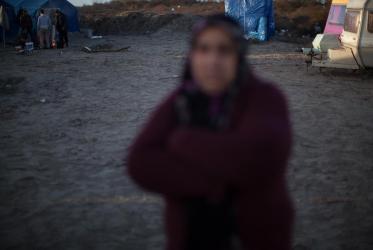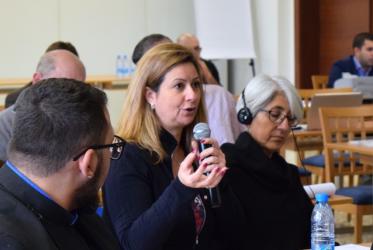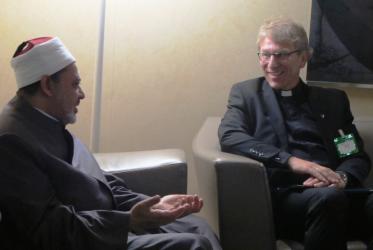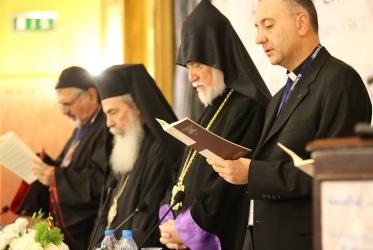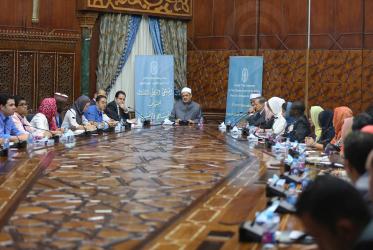Displaying 161 - 180 of 280
22 December 2016
Strong bridges needed more than ever
21 December 2016
“There are no strangers here” – Saint Irenaeus a key to unity?
19 December 2016
WCC general secretary mourns lost lives, calls for end to violence
11 December 2016
WCC urges immediate focus on safety, security in Aleppo
05 December 2016
Churches’ diaconal action in the Middle East analyzed
01 December 2016
In Syria and Iraq, minorities must come out of the darkness
28 November 2016
Dialogue flourishes between WCC, Muslim Council of Elders
30 September 2016
WCC set to observe World Week for Peace in Palestine and Israel
16 September 2016
Middle East Council of Churches convenes
08 September 2016
Seminar will address youth engagement, religion and violence
19 August 2016
Owe Boersma will strive for equilibrium as EAPPI coordinator
18 August 2016




